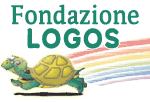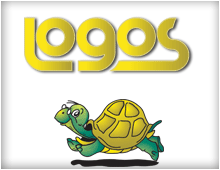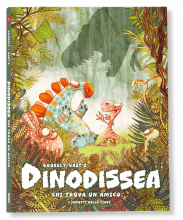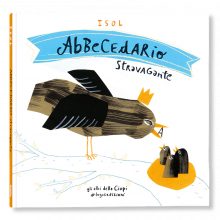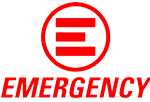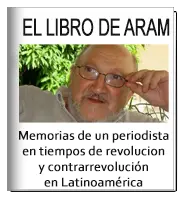Horizon 2020, cleaning up the Mediterranean
ArcoirisTV
- Visualizzazioni: 3222
- Lingua:
 | Sottotitoli:
| Sottotitoli: 
- Fonte: Mostra | Durata: 07.00 min | Pubblicato il: 28-07-2008
-

- Categoria: Informaciones
- Tag: Mostra Communication
- Scarica: MP3 | MP4 | alta risoluzione
Riproduci solo audio:
Arcoiris - TV
The Mediterranean is Europe's biggest sea. There are 22 countries that border it, and millions of citizens from Europe, North Africa or the Middle East call it "our sea". Their quality of life depends largely on the state of the Mediterraneanand its shores. But in certain areas, the sea is suffocating under industrial and domestic pollution, maritime traffic and galloping urbanization.
Therefore, countries bordering the Mediterranean set up partnerships in order to implement actions that would tackle the problem of pollution on Mediterranean shores.
The HORIZON 2020 initiative
Building on the work of the Barcelona Convention, at the summit to celebrate the 10th anniversary of the Euro-Mediterranean process in November 2005, the Euro-Mediterranean partners committed to:
"endorse a feasible timetable to de-pollute the Mediterranean Sea by 2020, while providing appropriate financial resources and technical support to implement it, using the Mediterranean Strategy for Sustainable Development and exploring possible areas for co-operation in this regard with UNEP".
Following-up on this commitment, the European Commission launched the Horizon 2020 initiative that aims to tackle the top sources of Mediterranean pollution by the year 2020.
The recent EU Commission environment strategy for the Mediterranean presents the scheme of Horizon 2020, grouping planned activities under four headings:
• Projects to reduce the most significant sources of pollution. The initial focus will be on industrial emissions, municipal waste and urban waste water, which are responsible for up to 80% of Mediterranean Sea pollution.
• Capacity-building measures to help neighbouring countries create national environmental administrations that are able to develop and police environmental laws.
• Using the Commission's research budget to develop greater knowledge of environmental issues relevant to the Mediterraneanand ensure this is shared. The experience built up from the LIFE programme and the Short and Medium Term Action Programme SMAP will be shared between the partners.
• Developing indicators to monitor the success of Horizon 2020.
In November 2006, a timetable of measures for the Horizon 2020 Initiative was launched. The timetable covers the first phase of H2020, up to 2013.
One of these measures called on the European Investment Bank and World Bank to work with donor countries to identifiy projects which have the largest impact on Mediterranean pollution levels, across the Mediterranean Region. Under this Mediterranean Hotspot Investment Program (MeHSIP) more than 40 priority projects have already been identified in seven countries. Three of them are featured in the video.
Interviews: Yassine Bouselmi, Director, ANGED
Adel Ben Marzouk, Director, ANGED
Abdelaziz Nacer, Water distribution authority
Claude Rouam, Head of Unit, Enlargement and Neighbourhood Policy European Commission
Najeh Dali, Environment and Sustainable Development Minister, Tunisia Visit the site: www.mostra.com
Download subtitles:
Therefore, countries bordering the Mediterranean set up partnerships in order to implement actions that would tackle the problem of pollution on Mediterranean shores.
The HORIZON 2020 initiative
Building on the work of the Barcelona Convention, at the summit to celebrate the 10th anniversary of the Euro-Mediterranean process in November 2005, the Euro-Mediterranean partners committed to:
"endorse a feasible timetable to de-pollute the Mediterranean Sea by 2020, while providing appropriate financial resources and technical support to implement it, using the Mediterranean Strategy for Sustainable Development and exploring possible areas for co-operation in this regard with UNEP".
Following-up on this commitment, the European Commission launched the Horizon 2020 initiative that aims to tackle the top sources of Mediterranean pollution by the year 2020.
The recent EU Commission environment strategy for the Mediterranean presents the scheme of Horizon 2020, grouping planned activities under four headings:
• Projects to reduce the most significant sources of pollution. The initial focus will be on industrial emissions, municipal waste and urban waste water, which are responsible for up to 80% of Mediterranean Sea pollution.
• Capacity-building measures to help neighbouring countries create national environmental administrations that are able to develop and police environmental laws.
• Using the Commission's research budget to develop greater knowledge of environmental issues relevant to the Mediterraneanand ensure this is shared. The experience built up from the LIFE programme and the Short and Medium Term Action Programme SMAP will be shared between the partners.
• Developing indicators to monitor the success of Horizon 2020.
In November 2006, a timetable of measures for the Horizon 2020 Initiative was launched. The timetable covers the first phase of H2020, up to 2013.
One of these measures called on the European Investment Bank and World Bank to work with donor countries to identifiy projects which have the largest impact on Mediterranean pollution levels, across the Mediterranean Region. Under this Mediterranean Hotspot Investment Program (MeHSIP) more than 40 priority projects have already been identified in seven countries. Three of them are featured in the video.
Interviews: Yassine Bouselmi, Director, ANGED
Adel Ben Marzouk, Director, ANGED
Abdelaziz Nacer, Water distribution authority
Claude Rouam, Head of Unit, Enlargement and Neighbourhood Policy European Commission
Najeh Dali, Environment and Sustainable Development Minister, Tunisia Visit the site: www.mostra.com
Download subtitles:
Per pubblicare il tuo commento, riempi i campi sottostanti e clicca su "Invia". Riceverai una email con la richiesta di conferma.

